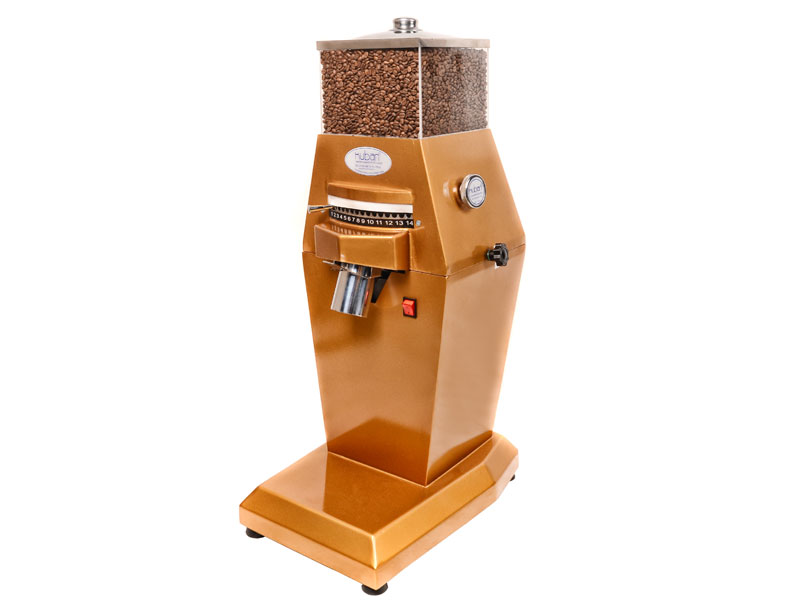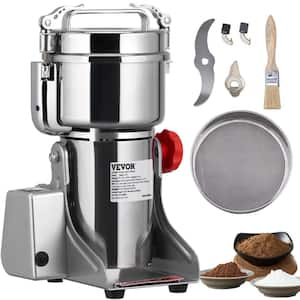How an Industrial Coffee Grinder Improves Brew Consistency
How an Industrial Coffee Grinder Improves Brew Consistency
Blog Article
Exactly How to Select the Perfect Industrial Coffee Mill for Your Company
Selecting the ideal industrial coffee mill for your organization is a diverse choice that calls for cautious factor to consider of numerous essential aspects. It is necessary to examine your details grinding demands, consisting of the quantity of coffee refined and the preferred work consistency, as these aspects directly impact flavor and customer contentment. Additionally, comprehending the different sorts of mills offered can substantially influence your functional performance. As you browse these considerations, one must also evaluate the implications of spending plan and maintenance. What various other variables could make or damage your selection?
Assess Your Grinding Requirements
When picking an industrial coffee grinder, one have to first evaluate their grinding requirements to make sure optimal performance and consistency. This initial examination includes recognizing the quantity of coffee to be refined daily, along with the desired work dimension for different developing methods. A high-capacity grinder may be essential for organizations offering big amounts of coffee, while smaller sized operations might locate a more compact model adequate.
Additionally, it is important to take into consideration the kinds of coffee beans being utilized, as various beans might call for specific grinding methods to accomplish the very best flavor account. Oily beans may necessitate a mill designed to deal with such characteristics without clumping or overheating.
Another vital aspect is the called for grind uniformity. Specialized coffee businesses usually require precise work sizes to boost removal and flavor, making it vital to choose a grinder that can deliver uniform results. Reviewing the offered area and electric requirements will help in selecting a mill that fits effortlessly right into your functional workflow. By thoroughly analyzing these aspects, companies can make educated decisions that align with their coffee grinding requirements, inevitably bring about a superior product and pleased customers.
Understand Grinder Types
Recognizing the different kinds of industrial coffee grinders is essential for making an educated choice that fulfills details operational demands. There are mainly 2 groups of grinders: blade grinders and burr grinders.
Blade grinders use spinning blades to cut the coffee beans, leading to an irregular grind size - Industrial Coffee Grinder. While they may be a lot more budget friendly, they are typically not ideal for commercial applications where accuracy is important
On the other hand, burr mills supply a more uniform work by squashing the beans in between two surface areas. They can be more categorized right into flat burr and conical burr mills. Flat burr grinders provide a consistent work size and are commonly preferred for coffee preparation, while conical burr mills are versatile and can take care of a series of brew approaches, from coffee to French press.
When selecting a grinder, think about the details requirements of your company, including desired grind uniformity, manufacturing quantity, and the kinds of coffee beverages you intend to offer - Industrial Coffee Grinder. Each grinder kind has its advantages and limitations, so recognizing these subtleties makes it possible for educated decision-making that straightens with functional goals
Evaluate Work Size Uniformity
Achieving grind size uniformity is crucial for generating premium coffee, as variants in bit dimension can considerably influence extraction and taste. When picking a commercial coffee mill, it is important to examine how well the equipment keeps uniformity in work size across different batches. Inconsistent work dimensions can result in uneven removal, leading to a mug that may taste weak or extremely bitter.
To examine work size consistency, think about grinders with functions this page such as adjustable work setups and top notch burrs. Burr mills, specifically, master producing uniform bit dimensions contrasted to blade grinders. The product and form of the burrs play a vital role, with stainless-steel and ceramic options offering resilience and precision.

Take Into Consideration Production Capacity
In the busy world of coffee manufacturing, thinking about production capability is vital for companies aiming to satisfy demand without compromising top quality. The manufacturing capacity of a commercial coffee mill directly influences a business's ability to meet orders efficiently, handle inventory, and react to rising and fall market fads.
When assessing production capability, it is important to evaluate the mill's outcome rate, commonly Recommended Site determined in extra pounds per hour. This dimension ought to line up with your business's forecasted sales quantity and development targets. For example, a coffee additional resources shop with a high turn over may call for a grinder that can process several hundred pounds daily, while a smaller operation may be sufficient with a reduced ability version.
In addition, think about the type of coffee being processed. Different beans and blends may influence grinding speed and efficiency, demanding a grinder efficient in handling varied manufacturing demands. It's likewise worth factoring in the grinder's capability to keep regular high quality under high result problems, as any variations can influence the final product.
Eventually, picking a mill that matches your company's manufacturing capacity will ensure you remain competitive and responsive to customer expectations.

Budget and Upkeep Factors
When examining the appropriate industrial coffee maintenance, grinder and budget variables play a significant function in the general decision-making procedure,. An initial investment in a high-quality grinder can yield long-lasting benefits, however it's important to establish a clear budget that aligns with your company's operational requirements. Think about both the acquisition cost and potential operational costs, such as energy consumption and replacement parts.
Industrial coffee grinders call for routine maintenance to make sure ideal performance and long life. Assess the producer's referrals for upkeep, including cleaning schedules and components substitute, as these will influence long-lasting functional expenses.

Purchasing a mill that is resilient yet very easy to preserve can conserve money with time. While lower-priced alternatives might be tempting, they may sustain higher upkeep prices and decreased performance. Eventually, stabilizing initial prices with long-term maintenance and functional efficiency will lead you to the best selection for your business's coffee grinding requirements.
Verdict
Picking the perfect industrial coffee grinder demands an extensive examination of grinding requirements, grinder types, grind size consistency, production ability, and financial factors to consider. A well-chosen grinder not only enhances the top quality of the coffee generated yet also contributes to the overall success and success of the enterprise.
Specialty coffee businesses frequently require precise grind dimensions to boost removal and flavor, making it vital to choose a mill that can provide consistent outcomes. Flat burr grinders supply a regular grind size and are typically preferred for coffee prep work, while cone-shaped burr grinders are functional and can manage a variety of brew approaches, from espresso to French press.
When selecting an industrial coffee grinder, it is critical to examine exactly how well the machine keeps uniformity in work size across various sets. Burr grinders, in specific, excel in creating uniform bit sizes contrasted to blade grinders.Selecting the excellent commercial coffee grinder requires an extensive examination of grinding requirements, mill types, grind dimension consistency, manufacturing capacity, and financial considerations.
Report this page